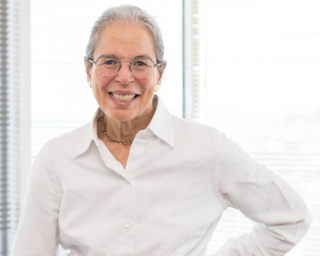Psychoneuroimmunology (PNI), also referred to as psychoendoneuroimmunology (PENI) or psychoneuroendocrinoimmunology (PNEI), is the study of the interaction between psychological processes and the nervous and immune systems of the human body. It is a subfield of psychosomatic medicine. PNI takes an interdisciplinary approach, incorporating psychology, neuroscience, immunology, physiology, genetics, pharmacology, molecular biology, psychiatry, behavioral medicine, infectious diseases, endocrinology, and rheumatology.

An intimate relationship is an interpersonal relationship that involves emotional or physical closeness between people and may include sexual intimacy and feelings of romance or love. Intimate relationships are interdependent, and the members of the relationship mutually influence each other. The quality and nature of the relationship depends on the interactions between individuals, and is derived from the unique context and history that builds between people over time. Social and legal institutions such as marriage acknowledge and uphold intimate relationships between people. However, intimate relationships are not necessarily monogamous or sexual, and there is wide social and cultural variability in the norms and practices of intimacy between people.

Social support is the perception and actuality that one is cared for, has assistance available from other people, and most popularly, that one is part of a supportive social network. These supportive resources can be emotional, informational, or companionship ; tangible or intangible. Social support can be measured as the perception that one has assistance available, the actual received assistance, or the degree to which a person is integrated in a social network. Support can come from many sources, such as family, friends, pets, neighbors, coworkers, organizations, etc.

Mahzarin Rustum Banaji FBA is an American psychologist of Indian origin at Harvard University, known for her work popularizing the concept of implicit bias in regard to race, gender, sexual orientation, and other factors.

Gary Berntson is an emeritus professor at Ohio State University with appointments in the departments of psychology, psychiatry and pediatrics. He is an expert in psychophysiology, neuroscience, biological psychology, and with his colleague John Cacioppo, a founding father of social neuroscience. His research attempts to elucidate the functional organization of brain mechanisms underlying behavioral and affective processes, with a special emphasis on social cognition.
Caregiver syndrome or caregiver stress is a condition that strongly manifests exhaustion, anger, rage, or guilt resulting from unrelieved caring for a chronically ill patient. This condition is not listed in the United States' Diagnostic and Statistical Manual of Mental Disorders, although the term is often used by many healthcare professionals in that country. The equivalent used in many other countries, the ICD-11, does include the condition.
Sheldon Cohen is the Robert E. Doherty University Professor of Psychology at Carnegie Mellon University. He is the director of the Laboratory for the Study of Stress, Immunity and Disease. He is a member of the Department of Psychology at Carnegie Mellon and adjunct professor of Psychiatry and of Pathology at the University of Pittsburgh School of Medicine.
The Perceived Stress Scale was developed to measure the degree to which situations in one’s life are appraised as stressful. Psychological stress has been defined as the extent to which persons perceive (appraise) that their demands exceed their ability to cope.
Marriage and health are closely related. Married people experience lower morbidity and mortality across such diverse health threats as cancer, heart attacks, and surgery. There are gender differences in these effects which may be partially due to men's and women's relative status. Most research on marriage and health has focused on heterosexual couples, and more work is needed to clarify the health effects on same-sex marriage. Simply being married, as well as the quality of one's marriage, has been linked to diverse measures of health. Research has examined the social-cognitive, emotional, behavioral and biological processes involved in these links.
Suzanne C. Segerstrom is a professor of Psychology and biostatistician at the University of Kentucky. She is known for her clinical research on optimism and pessimism in relation to health, stress, and general well-being.

Nancy Elinor Adler was an American health psychologist. She was the Lisa and John Pritzker Professor of Medical Psychology at the University of California, San Francisco (UCSF), and director of UCSF's Center for Health and Community Sciences. Adler was known for her research on health behaviors, health disparities, and social determinants of health.
Rachel Keen is a developmental psychologist known for her research on infant cognitive development, auditory development, and motor control. She is Professor Emeritus of Psychology at the University of Virginia.
Angela J. Grippo is an American neuroscientist and health psychologist known for her research on stress, mood disorders, and cardiovascular disease. She is an associate professor of psychology at Northern Illinois University.

Keith W. Kelley is an American immunophysiologist, researcher and academic. He is Professor Emeritus of Immunophysiology at the University of Illinois. Kelley was chosen as the second Editor-In-Chief of Brain, Behavior, and Immunity in 2003 and served in that capacity for 15 years. It is now considered “the best immunology journal in the neurosciences.” In 1994, he was elected as Secretary-Treasurer of the newly-formed Psychoneuroimmunology Research Society (PNIRS) and served as its President from 1999-2000. He retired from the University of Illinois in 2011, but continues to serve as a global leader in psychoneuroimmunology, creating PNIRSAsia-Pacific and PNIRSIbero-America. These scientific networks were formed to organize meetings that promote dialogue among Eastern and Western scientists engaged in psychoneuroimmunology research, as well as with those in South/Central America. As of 2023, over 30 of these meetings have been organized, mostly in China, but throughout the whole of Asia-Oceania.
Linda C. Gallo is a scientist known for behavioral medicine. Gallo is a professor at San Diego State University and serves as a part of the San Diego State / University of California, San Diego Joint Doctoral Program in Clinical Psychology. She serves as a co-director at the South Bay Latino Research Center.
Angela Denise Bryan is a social psychologist known for her research on HIV/STD prevention, healthy eating habits, and use of legalized cannabis. She is Professor of Psychology and Neuroscience at the University of Colorado Boulder where she co-directs the Center for Health and Neuroscience, Genes, and Environment.
Roxane Cohen Silver is a social, health psychologist known for her work on personal, national, and international traumas and how people cope with these traumas. She holds the position of Vice Provost for Academic Planning & Institutional Research and Distinguished Professor of Psychological Science, Public Health, and Medicine at the University of California, Irvine.
Marci Lobel is a health psychologist known for her research on women's reproductive health, effects of prenatal stress on pregnancy and newborn health, and how mothers learn to cope with stress.
Tracey A. Revenson is a health psychologist known for her research on how people cope with chronic illness and how people's lifestyles can affect their health and influence their coping mechanisms. She holds the position of Professor of Psychology at Hunter College and the Graduate Center of the City University of New York, and directs the Coping and health in context (CHiC) lab.
Michael R. Irwin is an American psychiatrist and academic who is the Norman Cousins Chair of the Semel Institute for Neuroscience and Human Behavior and a Distinguished Professor of Psychiatry and Biobehavioral Sciences at the University of California, Los Angeles (UCLA). He is also the Director of the Cousins Center for Psychoneuroimmunology and the Mindful Awareness Research Center at UCLA.






